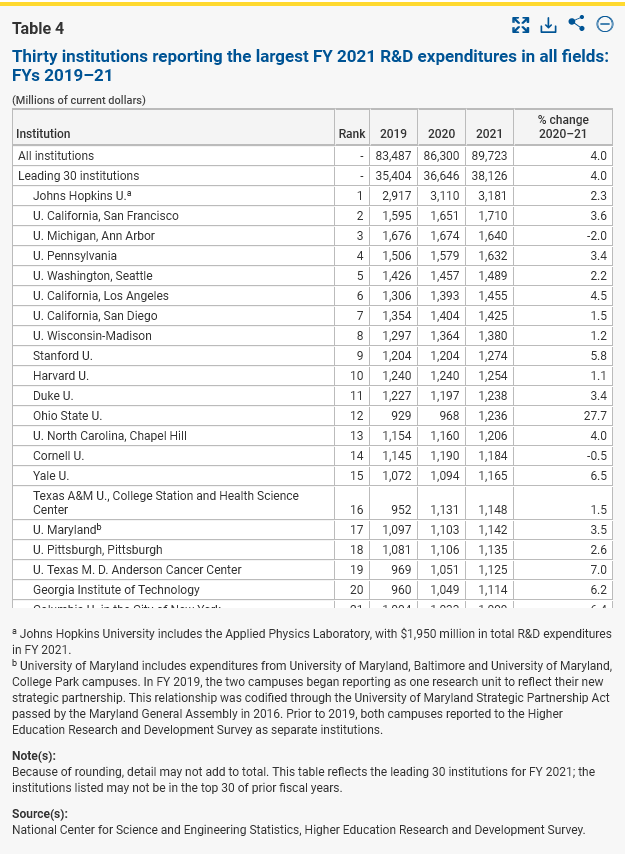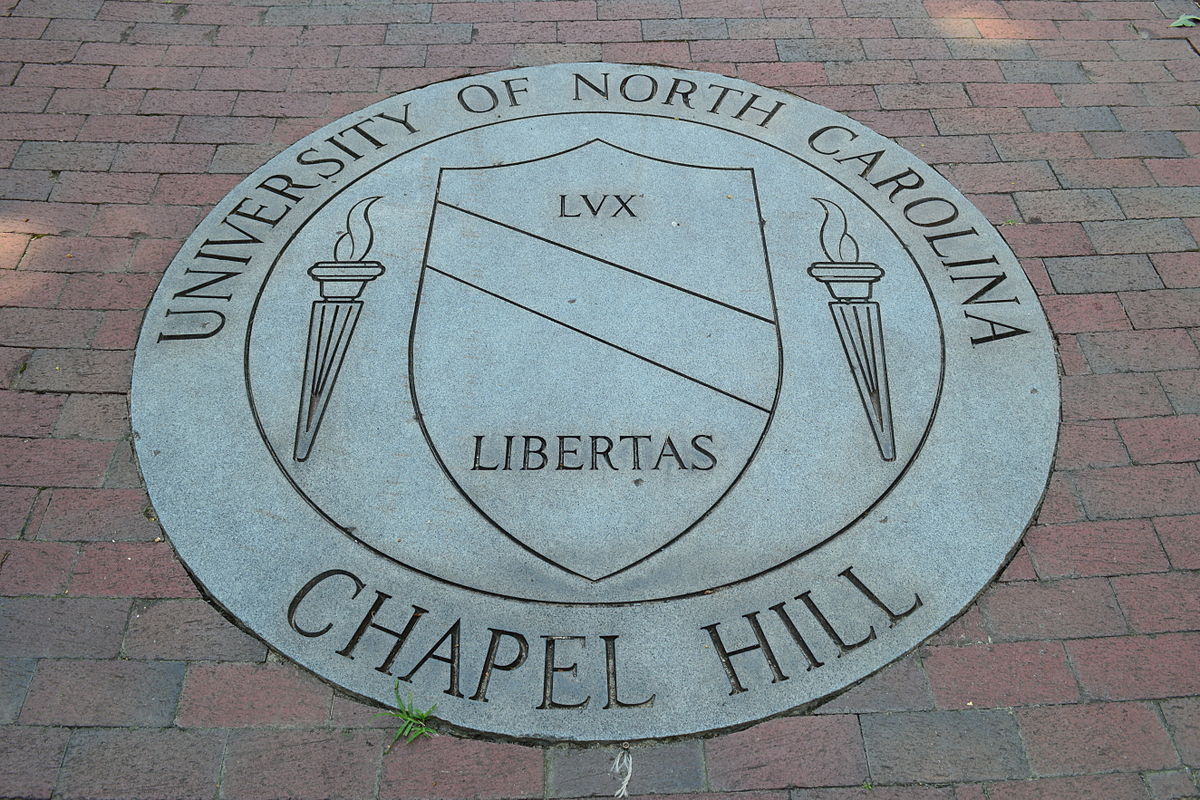Chapel Hill is a college town. More specifically, Chapel Hill is a research university town. Two of the top 13 institutions in the country that receive federal research funds are either in Chapel Hill or immediately adjacent to Chapel Hill.
Duke and UNC-Chapel Hill received $2.4 billion in sponsored research and development funds for federal Fiscal Year 2021. We have a knowledge development cluster that is centered on these two universities as well as a commercialization cluster that leverages this knowledge generation cluster at Research Triangle Park.

These two institutions conduct 2.5% of all university research and development in the United States. The population of Durham and Orange County combined is just over 478,000 people according to the 2020 US Census. The US population in 2020 was 329,5000,000 people. These two counties make up just about 0.15% of the US population.
These two counties have a knowledge creation and education cluster that is as disproportionate to the nation as the open hearth steel industry was to Pittsburgh in 1975.
At the same time, we’re not particularly heavy on college students relative to the R&D load. The Duke and UNC-Chapel Hill enrolled student population is just over 45,000 students (graduate, professional, and undergraduate). This is less than one quarter of one percent of all US college undergraduate and graduate students. There are more students at NCCU and Durham Technical, but we are nowhere near as heavy on college students as we are on R&D.
These clusters require a massively complex and deep labor market with thousands of moving parts ranging from individuals who have been in the field for thirty years with a PhD who lad labs, to grant administrators and intellectual property lawyers to students, to communications directors that keep smart aleck research associates out of trouble because they make us think before we speak to oh so many students.
Students, both graduate and undergraduate, are critical to the success of the research enterprises at both schools. Students provide both immediate labor and long term innovations and explorations that justify the research funding that has yet to come.
The town of Chapel Hill exports education and research. We import everything else ranging from cars to roofs to gasoline to computers.
Making the town less conducive to a key element of our primary export industry is a choice. It is a choice to limit our innovation and creativity and core economic reason for being. But it is a choice.

